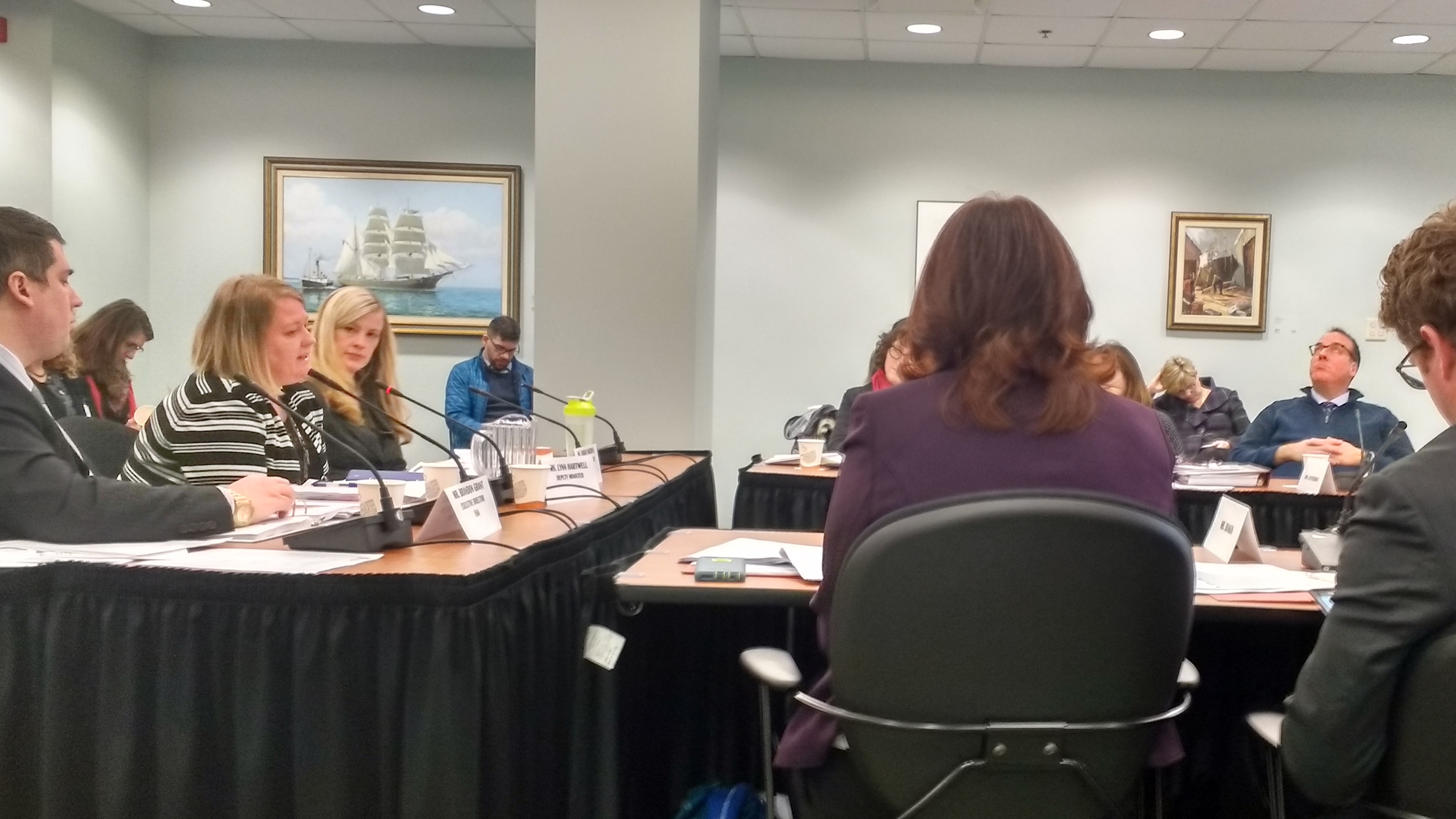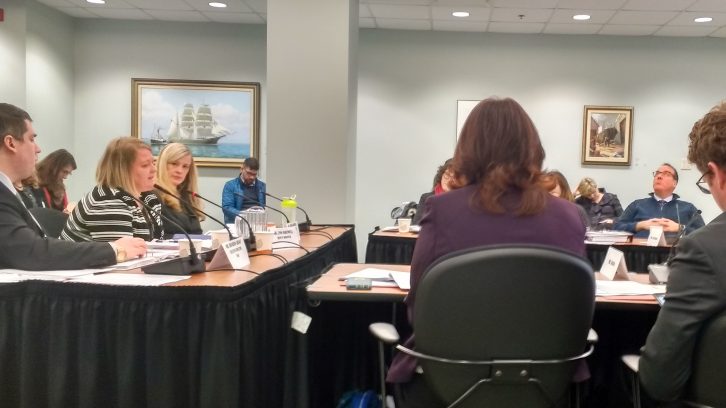Social Assistance
Community Services to bring changes to Nova Scotia’s welfare system
Case workers currently have jurisdiction over those in need of financial assistance

caption
Lynn Hartwell, Deputy Minister of the ESIA, speaks out at a meeting with MLAs.
caption
Lynn Hartwell, Deputy Minister of the ESIA, speaks out at a meeting with MLAs.Nova Scotia MLAs met on January 10 to discuss the province’s Employment Support and Income Assistance (ESIA) policy. They discussed upcoming changes meant to streamline ESIA’s services.
Deputy Minister of the ESIA, Lynn Hartwell, said she wants to move the group’s focus from specialized services to services that meet everyone’s needs.
“When you consider that 66 per cent our clients are special needs, it makes you think maybe these special needs aren’t so special,” she said at the meeting. Related stories
This means less funding set aside for specific needs like transportation and special diets, and transitioning to a system in which people have the power to make their own financial choices.
“They’re trying to spend less on administration and more on an allowance-based system,” said Iain Rankin, an MLA for Timberlea-Prospect who attended the meeting.
As it stands, the current system places case workers as go-betweens between the haves and the have-nots — approving some financial requests and turning down others.
Poverty advocates are saying nothing will change for Nova Scotia’s most vulnerable until case workers have less power. Specifically, the power to decide who gets financial assistance, and for what.
They said that case workers currently have the power to judge the validity of a client’s needs, even if they’ve received a doctor’s note.This could mean that a doctor could tell a client they need to be drinking protein shakes, but they could be refused compensation by an ESIA representative, poverty advocate and member of the Benefits Reform Action Group, Lori O’Brien told The Signal.
“They’re not doctors; they’re not professionals, so why are they rejecting doctor’s notes?” O’Brien asked. “What gives them the jurisdiction? Some cases workers will fight for their clients, but some won’t.”
It has also resulted in arbitrary but definitive rules, which have not been legislated. For example, the ESIA acknowledged at the meeting that many case workers require a client to have 12 medical appointments a month before the client can receive medical transportation benefits. This rule is followed, despite there being no mention of this number in the written regulations.
“It reveals how discretionary the system is,” said Stella Lord, coordinator for End Poverty Nova Scotia at the meeting. “There is nothing in the law that says these things; it’s just the internal policy.”
Eddie Orrell, MLA for Northside-Westmount, also spoke out against the current system. He said that he gets calls from constituents who need income support, but are confused by the system.
“When people come to our office, they tell me … they can be approved for a wool blanket, but not a new coat,” he says. “It’s very confusing to people … it’s tough on us, because these people are in need and we don’t know what we can give them.”
While no definitive changes have been announced, more details are expected to come this April.

